100 Best universities for Linguistics in Turkey
Updated: February 29, 2024
- Art & Design
- Computer Science
- Engineering
- Environmental Science
- Liberal Arts & Social Sciences
- Mathematics
Below is a list of best universities in Turkey ranked based on their research performance in Linguistics. A graph of 1.27M citations received by 122K academic papers made by 140 universities in Turkey was used to calculate publications' ratings, which then were adjusted for release dates and added to final scores.
We don't distinguish between undergraduate and graduate programs nor do we adjust for current majors offered. You can find information about granted degrees on a university page but always double-check with the university website.

1. Hacettepe University
For Linguistics

2. Middle East Technical University

3. Istanbul Technical University
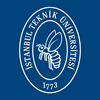
4. Bogazici University
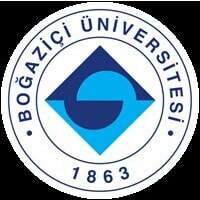
5. Istanbul University
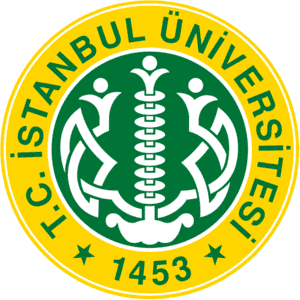
6. Gazi University
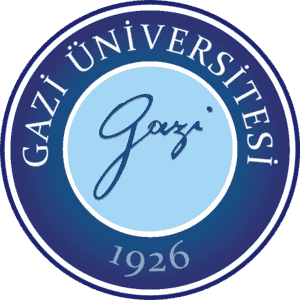
7. Ankara University
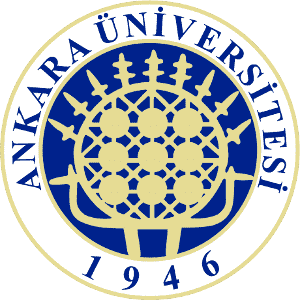
8. Bilkent University
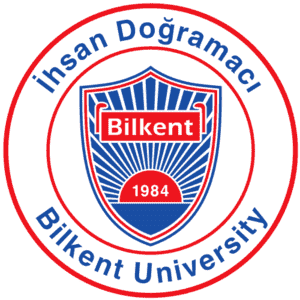
9. Yildiz Technical University
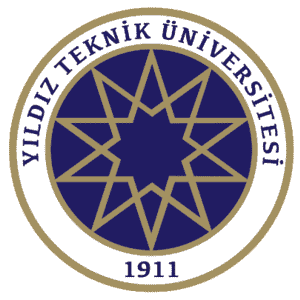
10. Dokuz Eylul University
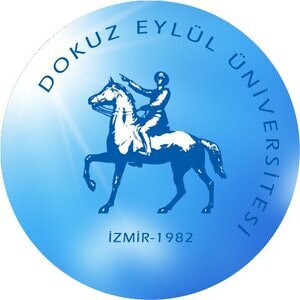
11. Ege University
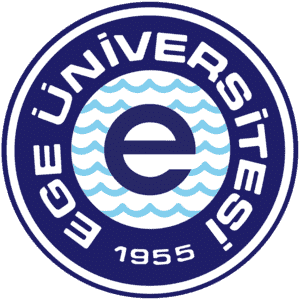
12. Marmara University
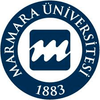
13. Selcuk University
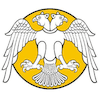
14. Firat University
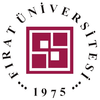
15. Koc University
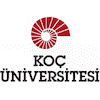
16. Anadolu University

17. Erciyes University
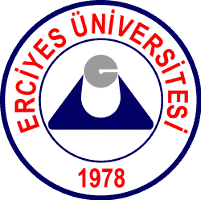
18. Ataturk University
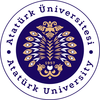
19. Uludag University
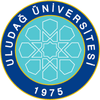
20. Sabanci University
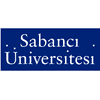
21. Akdeniz University
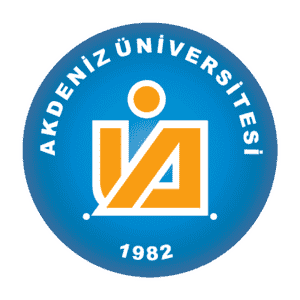
22. Kocaeli University
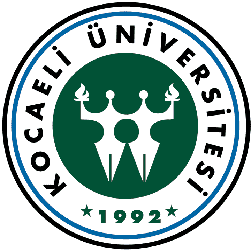
23. Cukurova University
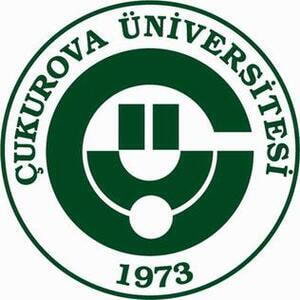
24. Karadeniz Technical University
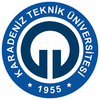
25. Pamukkale University
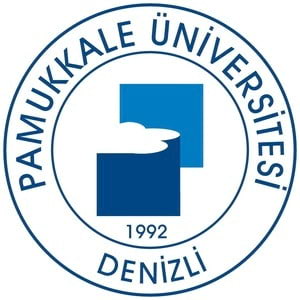
26. Sakarya University
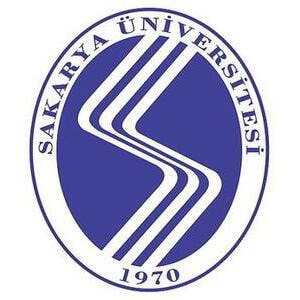
27. Eskisehir Osmangazi University
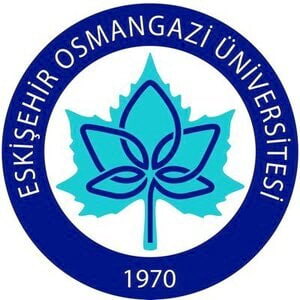
28. Baskent University

29. Ondokuz Mayis University
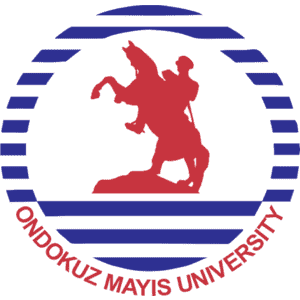
30. University of Gaziantep
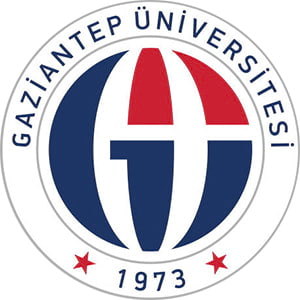
31. Inonu University
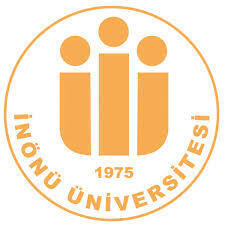
32. Mersin University
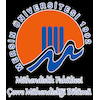
33. Tokat Gaziosmanpasa University
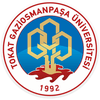
34. Cumhuriyet University
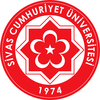
35. Suleyman Demirel University
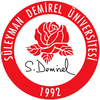
36. Galatasaray University
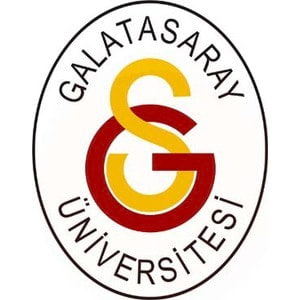
37. Mugla University
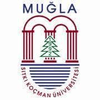
38. Celal Bayar University
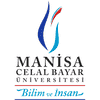
39. Kirikkale University
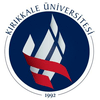
40. Atilim University
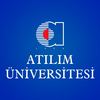
41. Abant Izzet Baysal University
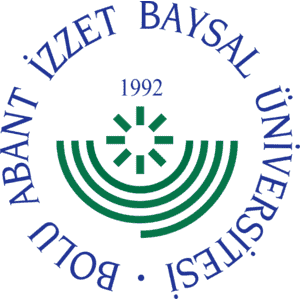
42. Trakya University
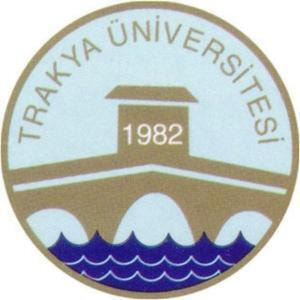
43. Canakkale Onsekiz Mart University
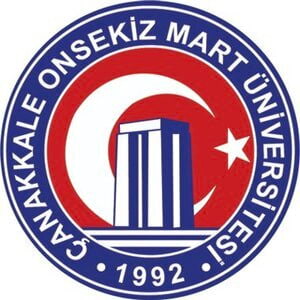
44. TOBB Economics and Technology University
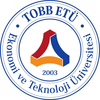
45. Dicle University
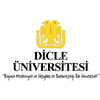
46. Yeditepe University

47. Balikesir University
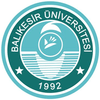
48. Van Yuzuncu Yil University

49. Afyon Kocatepe University
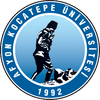
50. Adnan Menderes University
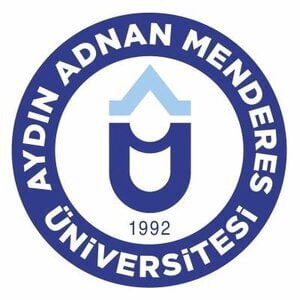
51. Istanbul Bilgi University

52. Bulent Ecevit University
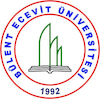
53. Cankaya University
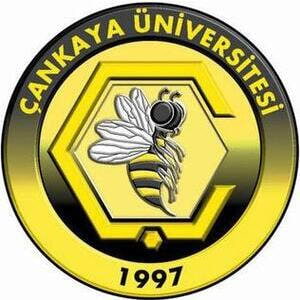
54. Mustafa Kemal University
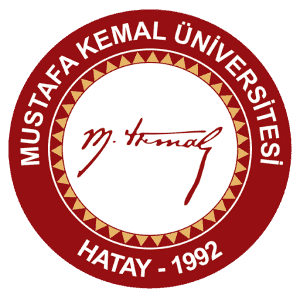
55. Kahramanmaras Sutcu Imam University
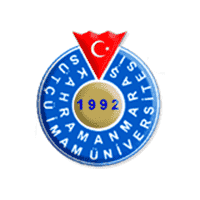
56. Gebze University of Technology
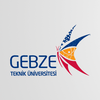
57. Izmir University of Economics
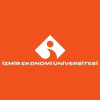
58. Maltepe University

59. Istanbul Medipol University
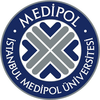
60. Duzce University
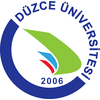
61. Yasar University
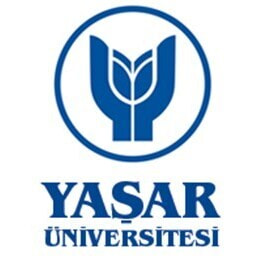
62. Istanbul Medeniyet University
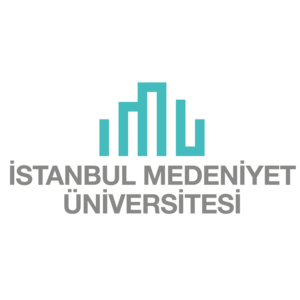
63. Izmir Katip Celebi University
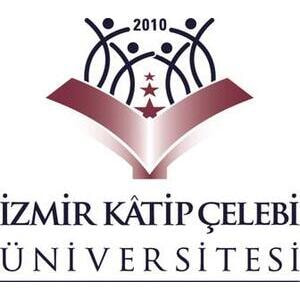
64. Usak University
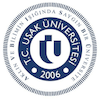
65. Izmir Institute of Technology
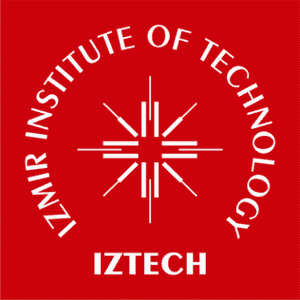
66. Nevsehir University
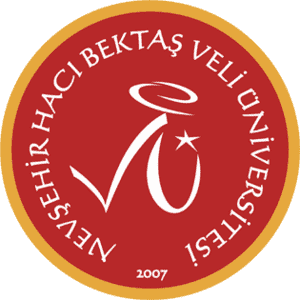
67. Bozok University
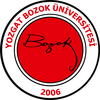
68. Istanbul Kultur University

69. Kadir Has University
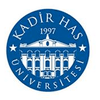
70. Dumlupinar University
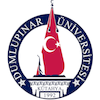
71. Aksaray University
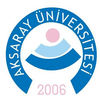
72. Mehmet Akif Ersoy University
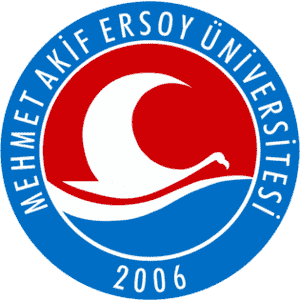
73. Karabuk University
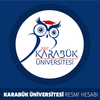
74. Harran University
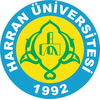
75. Amasya University
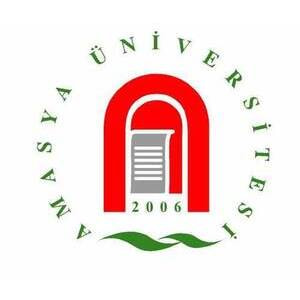
76. Recep Tayyip Erdogan University
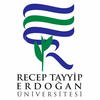
77. Tekirdag Namik Kemal University
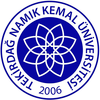
78. Mus Alparslan University
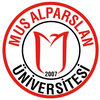
79. Bartin University
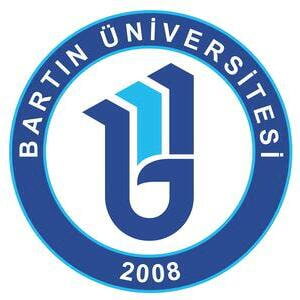
80. Ozyegin University
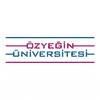
81. Adiyaman University
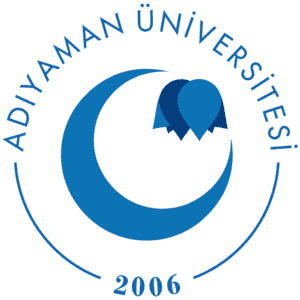
82. Cankiri Karatekin University
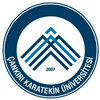
83. Giresun University
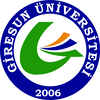
84. Ahi Evran University
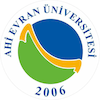
85. Isik University
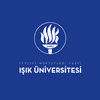
86. Karamanoglu Mehmetbey University
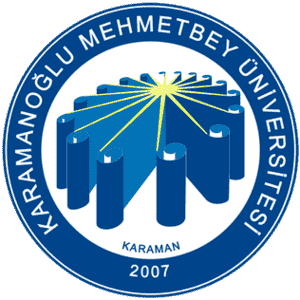
87. Kastamonu University

88. Kafkas University
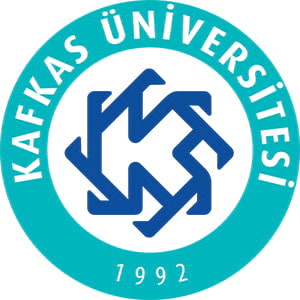
89. Dogus University
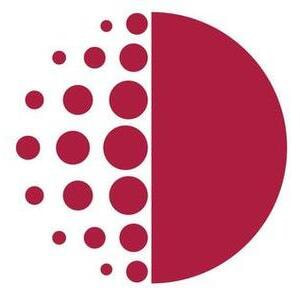
90. Erzincan Binali Yildirim University
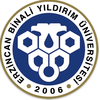
91. Istanbul Commerce University
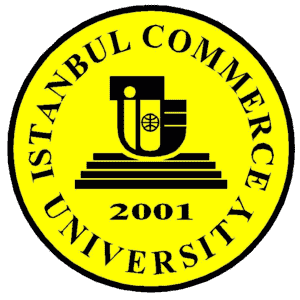
92. Istanbul Aydin University
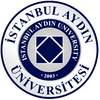
93. Munzur University
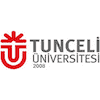

94. Ordu University
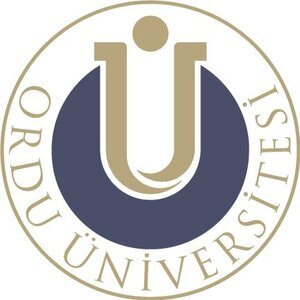
95. Okan University
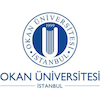
96. Beykent University
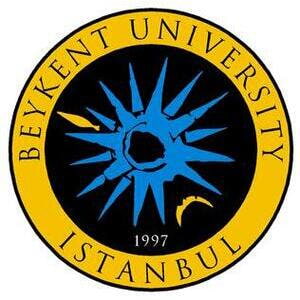
97. Siirt University
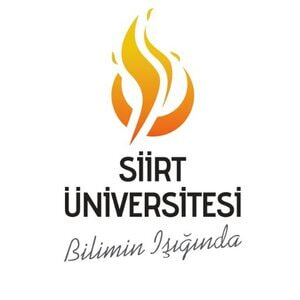
98. Kirklareli University
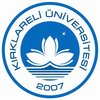
99. Bilecik Sheikh Edebali University
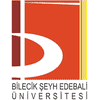
100. Gumushane University
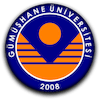
The best cities to study Linguistics in Turkey based on the number of universities and their ranks are Ankara , Istanbul , Izmir , and Karatay .
Liberal Arts & Social Sciences subfields in Turkey
Search form
BÜ Home Page
PhD Courses
- LING 601 Phonology (4+0+0) Study of a wide range of phonological phenomena found in natural languages. Description and analysis of such phenomena in theoretical terms. Prerequisite: LING 501 or consent of instructor
- LING 602 Topics in Phonetics/Phonology (4+0+0) Focusing on certain issues, problems in phonetics/phonology and an in-depth study of the chosen topic(s). Prerequisite: LING 601 or consent of instructor
- LING 604 Semantic Theory (4+0+0) Discussion of the major issues in linguistic semantics and theoretical approaches to these problems of meaning. Prerequisite:
- LING 612 Morphological Theory (4+0+0) Investigation of the theoretical and descriptive issues in morphological analysis of natural languages. Prerequisite: LING 512 or consent of instructor
- LING 621-622 Topics in Turkish Linguistics I-II (4+1+0) Reading the recent literature on theoretical issues in Turkish linguistics and working on selected topics leading to an in-depth research paper. Prerequisite: LING 522 or consent of instructor
- LING 631 Issues in Language Typology (4+0+0) Investigation of data presented by typologically different languages with an aim of uncovering implicational universals. Prerequisite: LING 531 or consent of instructor
- LING 633-634 Caucasian Linguistics I-II (4+1+0) Investigates the phonological, morphological, syntactic structures of Caucasian languages; analyzes the structural differences between the subfamilies of Caucasian languages and discusses the theoretical and descriptive issues inherent in the analysis. Prerequisite:
- LING 635-636 Field Methods I-II (4+2+0) Learning the techniques of data elicitation and working with a language not familiar with before. Describing and analyzing the numerous problems, structures, etc. of the language examined. Prerequisite: LING 411 or consent of instructor
- LING 641 Syntax (4+0+0) Analysis of the syntactic structures of natural languages within a particular theoretical framework with the aim of investigating the nature of syntactic properties of languages and particularly Turkish. Prerequisite: LING 541 or consent of instructor
- LING 642 Topics in Syntax (4+0+0) Focus on theoretical issues inherent in syntactic theory; presentation and in-depth investigation of the properties of universal grammar. Prerequisite: LING 641 or consent of instructor
- LING 651 Language Contact and Bilingualism (4+0+0) Focus on linguistic aspects of language contact such as borrowing, code switching, interference and creolistics. Attention paid to sociopsychological aspects such as attitudes towards bilingualism. Prerequisite: LING 411 or consent of instructor
- LING 652 Codeswitching (4+1+0) Main focus is on the grammatical aspects of code switching as well as morphological and morphosyntactic models explaining code switching behavior. Code switching in discourse will be studied and the relevance of language production models for code switching will be investigated. Prerequisite:
- LING 661 Proseminar in Language Variation (4+0+0) Focus on social and regional aspects of linguistic variation in general with particular emphasis on the situation in Turkey. Students will carry out independent research in one of the above-mentioned fields to collect data and analyze these within the relevant theoretical framework. Prerequisite:
- LING 662 History of Linguistics (4+0+0) Aims at providing a survey of the main issues and considerations relevant for each period of development of linguistics as the science of language. Prerequisite:
- LING 671-672 Readings in Linguistics (4+0+0) Extended individual readings on topics of interest to the student under the guidance of the instructor in the related field. Prerequisite:
- LING 680-682, 685-689 Special Topics in Linguistics (4+0+0) A group of courses designed for doctoral students, involving research and writing in a restricted field not covered in other courses or seminars. Prerequisite:
- LING 683-684 Seminar in Linguistic Theory I-II (4+0+0) Investigation and analysis of advanced topics in various fields of linguistics through presentation of original research and group discussion. Prerequisite:
- LING 790 Ph.D Dissertation Definition of a major research project in an area of specialization and its analysis within the framework of a current linguistic theory. Prerequisite:
| Boğaziçi University Department of Linguistics | 34342 Bebek/İstanbul Turkey |

Dilbilim Derneği
Dilbilim Derneği resmî web sayfası
- Linguistics Departments
In Turkey, 9 universities have Linguistics departments, but 7 of them accept students. Alphabetically, they are:
|
| Undergraduate Program ✓ Master Program ✓ Doctorate Program ✓ | ||
| Undergraduate Program ✓ Master Program ✓ Doctorate Program ✓ | |||
| Undergraduate Program ✓ Master Program ✓ Doctorate Program ✓ | |||
| Undergraduate Program ✓ Master Program ✓ Doctorate Program ✓ | |||
| Undergraduate Program ✓ Master Program ✓ Doctorate Program ✓ | |||
| No Student Admission | |||
| Undergraduate Program ✓ Master Program ✓ Doctorate Program ✓ | |||
| Undergraduate Program ✓ | |||
| No Student Admission |
* The education languages of these departments are English.
English Language Teaching (Ph.D.)
Graduate programs.
- English Language Teaching (M.A. with thesis)
- English Literature (M.A. with thesis)
- English Literature (Ph.D.)
Last Updated:
Program description (for the downloadable flyer version, click here ).
The Ph.D. program in ELT (English Language Teaching) aims to equip our graduates with a multidisciplinary, critical outlook on language research. Upon graduation, alumni of the ELT Ph.D. program are equipped with the skills necessary for synthesizing, critically assessing, and improving theoretical and practical findings in contemporary research on language, as well as language learning and teaching. Based on the vast fieldwork experience gained in the program, as their future academic career paths, our graduates can undertake large-scale qualitative, quantitative, and mixed-methods research in areas of (cross-cultural) educational studies, as well as theoretical or applied linguistics.
The Ph.D. program in English Language Teaching provides wide-ranging interdisciplinary training as it enables students to enroll in two tracks:
1) Language Education Track
2) Language Studies Track
Ph.D. graduates acquire a firm theoretical and practical knowledge based on social, cultural, and individual variables of language learning to improve the practices of national English language teaching and learning by analyzing current theories and applications in ESL/EFL and/or (applied) linguistics and make significant contributions to the field of language studies or language learning/teaching studies.
The graduates of the Ph.D. program in ELT can work as academicians and researchers and advisors at higher education institutions and research centers both nationally and internationally working in diverse fields within the language sciences. The graduates may also work as teacher educators of pre-service and in-service teachers in the field of English Language Teaching.
Ph.D. Degree Requirements
The Ph.D. program in ELT requires students to enroll in either Language Education Track or Language Studies Track based on the interest areas they would like to specialize in.
In order to complete the Ph.D. program, students should take a total of 2 must courses, 5 elective courses, 4 non-credit courses and write a Ph.D. Thesis. Upon the completion of course requirements, Ph.D. candidates are required to pass a written and an oral exam in their concentration areas. The successful candidates focus on their thesis work for the rest of their candidacy period.
Regardless of the entrance year of the program, it has been decided to implement these course statuses for all students who will come to the graduation stage since the Fall semester of the 2022-2023 Academic Year.
Tweets by METUFLE
Follow @METUFLE
© Middle East Technical University, Faculty of Education, Department of Foreign Language Education, Üniversiteler Mahallesi, Dumlupınar Bulvarı No:1, 06800 Çankaya/Ankara
- Homepage >
- International Students >
- Prospective Graduate >
- Which Departments Can I Apply To? >
- Graduate School Of Anadolu University >
- Department of Foreign Language Education >
Program in English Language Teaching - Ph.D.
General Information about the Department
The Ph.D. program's primary objective in English Language Teaching is to help individuals in their academic careers by improving their research skills and knowledge. There are four full professors, four associate professors, and eight assistant professors offering courses and supervising theses in the program. Graduates of the related MA programs (English Language Teaching, English Language and Literature, Linguistics, Translation Studies, etc.) are accepted to the program. Graduates from the Ph.D. program receive a Doctor of Philosophy (Ph.D.) diploma.
Career Opportunities
The graduates of the Ph.D. program are given the diploma of Doctor of Philosophy (Ph.D.) in English Language Teaching. Upon receiving the title, the graduates may work at universities as academicians or continue their careers as independent researchers and/or teachers.
Why should international students choose this department to study
The PhD program in English Language Teaching is designed in high standards following the most recent developments in the respective field. The graduates are equipped with the latest knowledge and skills in foreign language teaching. The courses offered in the program are delivered in English. Therefore, international students can easily follow the courses and write their dissertations under the supervision of high-quality professors of the program. The program attracted many international students in the past and currently has international students continuing their graduate education. This advantage allows prospective students to meet different international students and cultures during their study in the program.
- PhD Study in Turkey – A Guide for 2024
Written by Chris Banyard
A PhD in Turkey could be the perfect choice for adventurous international students looking for unique study opportunities. Turkish universities have a long tradition of international exchange, relatively low fees and offer a high quality of doctoral training.
The guide proves an introduction to everything you’ll need to know if you want to study your PhD in Turkey, including information about Turkish universities, their PhD structure, fees, application requirements and student visas.
PhD opportunities in Turkey – what’s on offer for 2024?
Bridging between Europe and Asia, Turkey has played a pivotal role in Western and Eastern history. The country abounds with historical sites and monuments and is home to a rich and diverse range of cultures. Whether you’re making these the focus of your research or just enjoying them alongside it, you’ll have plenty to explore during a Turkish PhD.
Reasons to study your PhD in Turkey right now include:
- Crossroads between East and West – Turkey is a meeting point for arts, cultures and peoples, with no shortage of iconic attractions, vibrant festivals and inspirational research ideas
- Fast-growing economy – with the second-fastest growing economy in the world and developing markets and political impact, now could be a great time to study your PhD in Turkey
- Study in English – the strong international outlook of Turkish universities means that many doctoral programmes are taught in English
- Affordable – low living costs and tuition fees make Turkey a good value destination for PhD study
| 208 | |
| 2 | |
| Istanbul University (1453) | |
| 224,000 | |
| 4 years | |
| €500-1,000 | |
| September to June |
PhD life in Turkey
Want to know more about life during a PhD in Turkey for international students? Our detailed guide covers everything from accommodation and living costs to culture and entertainment.
Turkish universities
Universities and other higher education providers in Turkey are divided into public (or state) and private (or foundation) institutions:
- Public universities ( Delvet Universiteleri ) are funded mostly by the state. As a result, they charge relatively low tuition fees. They may use Turkish, English, German or French as their language of instruction.
- Private / Foundation universities ( Ozel / Vakif Universiteleri ) typically charge high tuition fees but tend to be more active internationally, form partnerships with industry, and usually use English for most (if not all) courses and programmes.
All Turkish universities are governed by the Turkish Higher Education Council (YOK) . This ensures Turkish universities are internationally competitive and adhere to high standards of teaching.
Turkish university cities
There are several cities in Turkey with one or more universities and large numbers of students:
- Study in Istanbul
- Study in Ankara
- Study in Antalaya
- Study in İzmir
- Study in Kayseri
Turkish university rankings
Turkey has several universities that feature in the all three major university rankings tables, some of which are amongst the top 600 in the world according to these tables.
| University | THE 2024 | QS 2024 | ARWU 2023 |
|---|---|---|---|
| Koç University | 351-400 | =431 | - |
| Middle East Technical University | 351-400 | =336 | - |
| Sabancı University | 351-400 | =526 | - |
| Istanbul Technical University | 501-600 | =404 | |
| Bilkent University | 601-800 | =502 | - |
| Boğaziçi University | 601-800 | =514 | - |
| Cankaya University | 401-500 | - | - |
| World University Rankings, and . Visit their websites for more information. | |||
Do rankings matter for PhD study?
University rankings can help you choose a PhD project or programme, provided you know what to look at. Our guide explains how to use rankings as a prospective postgraduate.
PhD-structure
Partly due to Turkey’s candidacy for EU membership, Turkish degrees follow the Bologna Process. Therefore, doctoral programmes in Turkey are broadly similar to other European PhD programmes.
However, Turkish PhDs typically follow a very structured process with well-defined stages and assessments. This includes several courses, seminars and exams to a total of 240 ECTS credits. There may also be a preparatory class at the beginning of your programme. Specific content will vary between universities and programmes, but all taught components must be completed for you to be awarded your PhD.
Supervision
In Turkey, your doctoral development and thesis will be overseen by various supervision committees . Your main thesis supervisor will be a member of most of these committees. They will be an academic lecturer with expertise in your research area and will be appointed within the first year of your PhD. You may have a second supervisor, who can also be a member of these committees.
Proficiency exam
Proficiency exam Firstly, you will be examined through the proficiency exam at the early stages of your doctorate. This is similar to the MPhil to PhD upgrade in the UK. A proficiency committee will examine your thesis proposal through two written assessments and one oral assessments. The proficiency committee also sets up an exam jury committee , who organise and evaluate various exams during the remainder of your doctoral training; the results of these exams will also be considered by the proficiency committee.
Follow-up exam
After successfully completing the proficiency exam and defending the purpose of your research, you will begin your PhD proper. During the doctorate you will be regularly assessed every six months by a follow-up committee . This functions as a regular evaluation of your progress, ensuring your PhD is on track. The committee will examine your current studies, results, methodology and the working plan for your research through a submitted report.
Final thesis exam
Once you have completed your research, your final PhD thesis will be assessed by a dissertation jury . This is similar to the viva voce exam in the UK, but it takes the form of a public thesis defence.
Fees and funding
Overall, Turkey is an affordable location for doctoral study. In most cases, you can expect to pay low tuition fees and living costs. There are also some limited funding sources available for international students.
Turkish PhD fees
The tuition fees for English-taught PhD programmes at Turkish public universities are low, typically being around €500-1,000 per year for international students. Fees are even lower for Turkish citizens and for courses taught in Turkish. Bear in mind that exact amounts can vary somewhat depending on your university and doctoral programme.
PhD tuition fees at private universities in Turkey are significantly higher – around €5,250-17,500 per year. However, there are more funding options available at these institutions.
Living costs
In addition to low tuition fees, studying for a PhD in Turkey offers good value for money due to the low cost of living in Turkish cities. Accommodation, food, entertainment and travel are all affordable in comparison to other countries. Normally, you can expect to spend around €345 per month.
Turkish PhD funding
Because PhD tuition fees at Turkish public universities are relatively low, doctoral funding is typically offered to Turkish nationals or students from more economically disadvantaged countries. Some of the funding sources available are:
- Türkiye Burslari – a variety of scholarships funded through the Turkish government, aimed at students from Central Asia, Africa, the Middle East and eastern Europe
- Tübitak – the Scientific and Technological Research Council of Turkey offers research fellowships, but mostly for Turkish students
- Islamic Development Bank (IsDB) – funds PhD research programmes in Sustainability Science for students in IsDB member countries and Muslim communities
Additionally, individual universities often offer their own merit scholarships and grants for international PhD students.
Applying for a PhD in Turkey
Applications for doctoral degrees in Turkey can be slightly different compared to applications in the UK, mainly because of the use of entrance examinations. However, the overall process follows a similar route to most PhD applications.
The specific requirements and procedures can vary depending on your research institution and area of study – you should contact your potential university’s international office for more specific information.
Admission requirements
PhD programmes in Turkey require you to hold relevant Bachelors and Masters degrees to be eligible. Most degrees from within Europe will be easily recognised, but different foreign degrees may require additional recognition to be accepted as equivalent qualifications.
Additionally, to be accepted for a doctoral programme in Turkey you will usually need to submit some form of research proposal . It is recommended that your contact your prospective supervisor and / or university before applying to help with this. You will usually also need to submit academic references and will often need to attend an interview .
PhD entry requirements
The general eligibility criteria for PhD applications in Turkey is similar to most other countries in the Europe. Our guide explains general entry requirements for a prospective PhD student.
Entrance examinations
As a PhD applicant to a Turkish university, you will need to complete entrance exams to verify your subject knowledge and academic experience.
The major test used in Turkey is the Academic Personnel and Graduate Education Entrance Exam (ALES). The score required can vary somewhat but is usually a minimum of 50-70. The exams are held at scheduled times throughout the year, and you can found these dates and more information about the ALES at the examination coordinators ÖSYM .
You may also be accepted based upon the scores of alternative international admissions tests, such as the GMAT (typically requiring a minimum score of 500) and the GRE (typically requiring a minimum score of 685).
More information regarding the entrance examinations you will be required to take will be available from your prospective university.
Language requirements
Many PhD programmes in Turkey use English as the language of instruction. This is increasingly common and is often the case for newer Turkish institutions. To be admitted to one of these doctoral programmes as a non-native English speaker, you may be required to submit a score from an English language test . These may be internationally recognised tests such as TOEFL or IELTS, or be a test offered by the Turkish examination coordinator ÖSYM .
Even if your degree is not taught in Turkish, learning the language will be helpful for in your studies and in daily life.
Applying for a PhD
PhD applications in Turkey will require additional documents and processes. These are similar to those in the UK. Our guide explains PhD applications for prospective students.
Student visas
In order to enter and live in Turkey for your PhD, you will be required to obtain a student visa and register your residence. Your prospective university will also assist you with these processes.
As Turkey is not yet a full EU member state, most international students wishing to study a PhD at a Turkish university must obtain a student visa (including those from the EU, EEA and Switzerland).
This can be done at the nearest Turkish consulate in your home country and should completed ahead of your travelling to Turkey (you will not be allowed to enter the country nor enrol at university until this is finalised).
Alternatively, you can apply for an eVisa – this method is simpler, faster and usually slightly cheaper.
There is an application fee associated with each visa application. The specific amount varies depending on your country of origin but is usually around €20-50.
Residence registration
To live in Turkey, all foreign students must obtain a residency permit ( Ikametgah Belgesi ). This must be done within one month of residence in Turkey.
This can be done online on Turkey’s Ministry of Interior Directorate General of Migration Management (IKAMET) or in person at a Bureau of Foreign Residence Registration or local police station.
Health insurance
Whilst resident in Turkey during your doctorate, you are required to be covered by a form of health insurance. You can register with Turkey’s Social Security Institution (SGK) or organise your own private insurance policy.
A Turkish PhD is an internationally recognised degree and an impressive achievement. The demanding admissions and assessments of a PhD in Turkey may also make you stand out from the crowd.
The unique location of Turkey at the crossroads of Europe and Asia, and the multiculturism that it brings, should also prepare you for an academic or professional career on the global stage.
Can I work in Turkey after my PhD?
Typically, proficiency in the Turkish language is needed to pursue a career in Turkey. However, this is not always these case – there are several multinational companies based in Turkey.
To work in Turkey, you will need to apply for a work permit ( Calisma Izni ). The application process can be complex, and you may be required to leave Turkey and apply from your home country. Work permits are usually initially valid for one year, and the duration of validity increase with each subsequent renewal.
You will also need to update your visa and residency permit to reflect your new employment status.
Find a PhD in Turkey
Ready to start browsing some current PhD opportunities in Turkey ? Alternatively, you can look at our other guides to PhD study abroad .
Our postgrad newsletter shares courses, funding news, stories and advice
You may also like....

What's it like to live in Turkey during a PhD? Our guide covers accommodation, student living costs, working and other key information.
FindAPhD. Copyright 2005-2024 All rights reserved.
Unknown ( change )
Have you got time to answer some quick questions about PhD study?
Select your nearest city
You haven’t completed your profile yet. To get the most out of FindAPhD, finish your profile and receive these benefits:
- Monthly chance to win one of ten £10 Amazon vouchers ; winners will be notified every month.*
- The latest PhD projects delivered straight to your inbox
- Access to our £6,000 scholarship competition
- Weekly newsletter with funding opportunities, research proposal tips and much more
- Early access to our physical and virtual postgraduate study fairs
Or begin browsing FindAPhD.com
or begin browsing FindAPhD.com
*Offer only available for the duration of your active subscription, and subject to change. You MUST claim your prize within 72 hours, if not we will redraw.

Do you want hassle-free information and advice?
Create your FindAPhD account and sign up to our newsletter:
- Find out about funding opportunities and application tips
- Receive weekly advice, student stories and the latest PhD news
- Hear about our upcoming study fairs
- Save your favourite projects, track enquiries and get personalised subject updates

Create your account
Looking to list your PhD opportunities? Log in here .
PhD English Language and Literature
| Study location | Türkiye, Halkalı/Istanbul |
|---|---|
| Type | Doctoral, full-time |
| Nominal duration | 3 years (240 ) |
| Study language | English |
| Awards | PhD |
| Tuition fee | US$12,000 one-time Payment methods for students accepted to the program will be included on the acceptance letter. Unless otherwise announced, payments are made in two installments. The first installment of the program is taken during the registration period and the second installment is taken at the end of the first semester. |
|---|
| Entry qualification |
Often you can get a suitable transcript from your school. If this is not the case, you will need official translations along with verified copies of the original.
|
|---|
| Language requirements | -To get a score of at least 80 from YDS or YÖKDİL (English) or an equivalent score from a foreign language (English) exam accepted by ÖSYM. The exams accepted are TOEFL IBT, ÜDS / KPDS / YDS / E-YDS / YÖKDİL, PTE ACADEMIC, CPE /CAE. |
|---|
| Other requirements |
- Master’s degree in English Language Literature, American Culture and Literature, English Language Education. -Click here for detailed information: |
|---|
Russia Does this correspond to your citizenship?
We tried to guess your citizenship based on your current location. In case we are wrong, please correct it, so that you will see deadlines and requirements that apply specifically to you.
If you want to keep this list or also access it on your other devices, please sign in / register
Ph.D. Programs
The Department of Linguistics offers four concentrations leading to the Doctor of Philosophy (Ph.D.) degree in Linguistics (see list below). No matter the concentration, our faculty work closely with students, guiding their research and supporting their passions.
- Applied Linguistics
- Computational Linguistics
- Sociolinguistics
- Theoretical Linguistics
Applicants to the Ph.D. program are encouraged to identify prospective research advisors, at least one of whom should be in the concentration to which they apply.
After entering the program, Ph.D. students may elect to add a minor in a second one of these concentrations [new policy effective Spring 2023].
An interdisciplinary (second) concentration in Cognitive Science is also available to Ph.D. students.
Master’s in Passing
If, in their course of the Ph.D. program, a doctoral student meets all of the requirements of a M.S. degree in Linguistics, he or she may apply to receive a “Master’s in Passing.” Please consult section IV.D.3 of the Graduate School Bulletin for full details about the “in passing” or “terminal” Master’s degree.
1 POSTDOC-applied-linguistics positions in Turkey
Filtered by.
- POSTDOC-applied-linguistics
Refine Your Search
The transplant immunology research centre of excellence post-doctoral researcher.
to apply E-mail [email protected] Contact City Istanbul Website https://www.ku.edu.tr/en/home https://kutirex.ku.edu.tr/ E-Mail [email protected] STATUS: EXPIRED
Searches related to POSTDOC applied linguistics
- postdoctoral
- applied linguistics
- linguistics
- postdoc linguistics
- postdoctoral linguistics
- applied linguistics phd
- social sciences
- discourse analysis
Linguistics and Applied Linguistics, PHD
On this page:.
At a Glance: program details
- Location: Tempe campus
- Second Language Requirement: No
Program Description
Degree Awarded: PHD Linguistics and Applied Linguistics
The PhD program in linguistics and applied linguistics focuses on the scientific study of human language and the application of that study to the human condition.
Students in this program select a research specialization in formal linguistics, applied linguistics or some combination within these fields of study.
The curriculum provides professional training in linguistics and applied linguistics with focused research in several linguistic subfields, including syntax, semantics, phonetics, phonology, pragmatics, discourse analysis, sociolinguistics, language contact and change, language planning, Indigenous American linguistics, language documentation and revitalization, second language acquisition, second language teaching and learning, teaching English to speakers of other languages, global Englishes and computer-assisted language learning.
The doctoral program in Linguistics and Applied Linguistics focuses on the study of human language and the application of that study to the human condition. Students in this program will choose a research specialization which can be formal linguistics, applied linguistics, or some combination of these areas. The curriculum will provide training in linguistics and applied linguistics with focused research in several areas such as phonetics, phonology, syntax, semantics, and pragmatics. Second language acquisition and second language teaching and learning, TESOL (teaching English to speakers of other languages), language contact and change, including World Englishes, are also research possibilities in addition to sociolinguistics, language planning, discourse analysis, language and cognition.
Matthew Prior , Director
Kira Assad, Program Manager
Faculty in Linguistics and Applied Linguistics
Doctoral Examinations
Doctoral Procedures and Timeline
Teaching Assistantships
Degree Requirements
Curriculum plan options.
- 84 credit hours, a written comprehensive exam, an oral comprehensive exam, a foreign language exam, a prospectus and a dissertation
Required Core (18 credit hours) APL 555 Disciplinary Discourses (3) APL 601 Introduction to Applied Linguistics (3) LIN 511 Phonetics and Phonology (3) LIN 514 Syntax (3) LIN 515 American English (3) or LIN 516 Pragmatics and Discourse Analysis (3) LIN 655 Advanced Disciplinary Discourses in Linguistics and Applied Linguistics (3)
Electives and Research (33 credit hours) LIN 501 Approaches to Research (3)
Specialization (21 credit hours)
Culminating Experience (12 credit hours) LIN 799 or APL 799 Dissertation (12)
Additional Curriculum Information When approved by the student's supervisory committee and the Graduate College, this program allows 30 credit hours from a previously awarded master's degree to be used for this degree. If students do not have a previously awarded master's degree, then 30 credit hours is made up of additional electives and research coursework which must include LIN 510, if they have not previously taken it or its equivalent.
Students must demonstrate evidence of competent knowledge of a natural language other than modern English, to be selected by the student and subject to the approval of the chair of the dissertation committee. The language requirement must be completed before the student is eligible to take the doctoral examinations. This requirement may be met by any of the following:
- earning a "B" or higher (3.00 on a 4.00 scale) in a 400- or 500-level course in an appropriate (approved) language
- demonstrating comparable proficiency by taking a language examination, administered by the School of International Letters and Cultures, in a language approved by the student's supervisory committee
- demonstrating native-speaker proficiency, as determined by the School of International Letters and Cultures, in a language approved by the student's supervisory committee
- earning a "B" or higher (3.00 on a 4.00 scale) in both ENG 530 Old English and ENG 531 Old English Literature or the equivalent of each
- holding a bachelor's degree in an approved foreign language
- having fulfilled a foreign language requirement toward a previously awarded master's degree that was completed within five years of the semester for which the student was admitted to the doctoral program
- two years (four semesters) of successfully completed college-level coursework (no more than six years prior to admission to the degree program) at least at the 100 and 200 levels with a "C" or better for languages which the School of International Letters and Cultures does not offer or does not offer above the 200 level
The foreign language requirement must be in a language approved by the student's doctoral supervisory committee.
Admission Requirements
Applicants must fulfill the requirements of both the Graduate College and The College of Liberal Arts and Sciences.
Applicants are eligible to apply to the program if they have earned a bachelor's or master's degree from a regionally accredited institution.
Applicants must have a minimum cumulative GPA of 3.00 (scale is 4.00 = "A") in the last 60 hours of their first bachelor's degree program, or a minimum cumulative GPA of 3.50 (scale is 4.00 = "A") in an applicable master's degree program.
All applicants must submit:
- graduate admission application and application fee
- official transcripts
- statement of purpose
- resume or curriculum vitae
- three letters of recommendation
- academic writing sample relevant to the field
- statement of teaching philosophy (teaching assistantship only)
- proof of English proficiency
Additional Application Information An applicant whose native language is not English (regardless of current residency) and has not graduated from an institution of higher learning in the United States must provide proof of English proficiency. Applications will not be processed without valid proof of English proficiency. More information about English proficiency requirements can be found the school website . Please note that official scores must be sent to ASU in order for the application to be processed.
The well-considered one- to two-page statement of purpose should explain the applicant's scholarly background and training, career goals, proposed research specialization, any secondary field of interest and why the applicant wishes to pursue a PhD in linguistics and applied linguistics at Arizona State University. Applicants applying for funding must also submit a statement of teaching philosophy.
Next Steps to attend ASU
Learn about our programs, apply to a program, visit our campus, application deadlines, learning outcomes.
- Independent research expertise: Students will be able to design and carry out an original research study in their discipline and subdisciplines.
- Scholarly writing expertise: Students will demonstrate the ability to produce written scholarly work at a level expected by the profession and consistent with the degree program.
- Critical analysis expertise: Students will demonstrate the ability to explain, synthesize and critique existing scholarship in their research area.
Career Opportunities
Graduates with research expertise in linguistics and applied linguistics work in a variety of professional contexts, such as academia, government, business, health care, legal settings, publishing, the private sector and nongovernmental organizations.
Career examples include:
- computer-assisted language learning expert
- data analyst
- forensic linguist
- language policy or documentation expert
- language program director or coordinator
- language researcher
- linguistic consultant
- program and curriculum developer
- teacher trainer
- university professor
Global Opportunities
Global experience.
With over 250 programs in more than 65 countries (ranging from one week to one year), study abroad is possible for all ASU students wishing to gain global skills and knowledge in preparation for a 21st-century career. Students earn ASU credit for completed courses, while staying on track for graduation, and may apply financial aid and scholarships toward program costs. https://mystudyabroad.asu.edu
Program Contact Information
If you have questions related to admission, please click here to request information and an admission specialist will reach out to you directly. For questions regarding faculty or courses, please use the contact information below.
- [email protected]
- 480/965-3194
Department of Languages, Cultures & Applied Linguistics
Dietrich college of humanities and social sciences, frequently asked questions (faqs), ph.d. in applied linguistics & second language acquisition.
General Questions
When is the application deadline?
Please view details about the Ph.D. program in Applied Linguistics & Second Language Acquisition, including application deadline, on our website . *All transcripts and supporting material are due by the application deadline. All information will be posted to your file once you submit your online application. Please note that official transcripts and test scores are not updated as received until you submit your application. *All letters of recommendation are due by the application deadline. *All official GRE, IELTS and TOEFL score reports are due by the application deadline. It is strongly suggested that you plan to take all required tests before November for the Ph.D. program.
Where should all documents be sent?
All application materials will be submitted online .
How many students are admitted each year?
The total number of students may vary between five and ten each year.
Are there additional financial aid forms to complete?
Graduate students are permitted to apply for any financial aid for which they are eligible. For more information and financial aid application forms, contact The HUB .
Do students receive a tuition waiver?
Students in the Ph.D. program are eligible to receive a partial to full tuition scholarship, as well as a living stipend.
I used my email address and password, but I cannot access the online application. What is the problem?
If your browser accepts cookies, and your computer is not behind a firewall, then you should be able to log in successfully. Also, please make sure you are using the same website and email address to log in that you used to register. If you continue to have problems, please contact us .
What if all my supporting documents do not arrive by the deadline?
Supporting materials that arrive after the deadline may cause a delay in your application being reviewed. Your information will be updated as materials are received.
Can I make changes to my online application after it has been submitted?
Prior to submitting, you may return and make any changes to your application. Once you submit your application, you may make changes to select sections: CV, Publication, Statement of Purpose, and Letters of Recommendation.
If I applied last year and was not admitted, can I reapply this year?
Yes. You must create an entirely new application. It is possible to request that official test score reports and transcripts from the previous year be used if no changes have been made to them.
Jump to a Section
Biographical information, transcripts, recommenders, application status, how do i obtain an i-20 form.
Please refer to the Office of International Education page . This page contains a wealth of information for international students accepted to Carnegie Mellon University.
I do not currently have a visa, but will need to apply for one. What do I select under visa status?
Select the one that will most closely match your status when you arrive on campus. Most likely you will need an F1 visa; however, you should carefully review the information on the Office of International Education page .
What should I give as my current address?
Use the address where you will be available to receive mail through April. You may enter a permanent address if it differs from your current address. Do NOT enter a PO Box. The acceptance packets are sent by express mail (e.g. FedEx, UPS), and cannot be delivered to a PO Box address.
What do I do if my email address or current address changes before the end of the semester?
You may change your current address, email address and password in your submitted application until the application deadline. If there is any change after this date, please send an email to [email protected] , and the Graduate Program Coordinator will make the necessary updates. It is very important that you maintain a valid email address in your submitted application.
What are the GRE and TOEFL institution and department codes?
GRE: Institution code, 2074; Department code not needed
TOEFL: Institution code, 2074; Department code not needed
Please refer to the GRE testing schedule to determine test dates. No application will be considered complete until we have received these scores. GRE scores will not be accepted if more than two years old.
Am I required to submit a TOEFL score?
I have requested my transcripts and test scores be sent, but my application has not been updated..
You must first SUBMIT your application before receipt of test scores or transcripts will be updated. They must be matched and updated manually, which may take several days once you submit your application.
Submit official transcripts. This can be done electronically through your university’s electronic transcript service or via sealed hard copy.
How many transcripts should I send?
Please mail only ONE official copy of your transcript from each college or university attended, whether or not you received a degree. Only electronic transcripts sent via the University (or University service provider) with verification that the transcript is an official version will be recognized as an official transcript.
What happens if my transcripts or test scores arrive before my application?
All supporting documents that arrive before you submit your application will be kept on file. Please note that transcripts will not be marked as received in your online application until you have actually submitted your application. They must be matched and updated manually.
Where do I mail my transcripts?
If your College or University issues only hard copies of your transcript, please use the address below.
Department of Modern Languages Carnegie Mellon University Posner Hall 341 Pittsburgh, PA 15213-3891 USA Attention: Vera Lampley, Graduate Programs
Send official electronic copies of your transcript to [email protected] . If your transcript is not in English please provide a translated copy with the original.
My recommenders have not received the email requests or the reminder emails that were sent. What should I do?
First, make sure that you typed the correct email address, and then ask them to check their spam filters.
If the email cannot be found, please ask them to send their letters in pdf format to [email protected] with the subject line "Upload recommendation letter for [your name]". Uploads will not be completed here until early January.
Can the same person serve as a recommender for language proficiency and an academic recommender?
Yes. However, they must fill out both forms and submit them separately.
What should I do if the deadline is approaching or has passed and one or more of my recommenders has not submitted their recommendation?
You may send a reminder notification to your recommender via your Application Status Page from your submitted application. It is your responsibility to make certain that the letters are submitted by the application deadline. Applications without three letters of recommendation not received by the deadline may not be considered.
Can I submit more than three letters of recommendation?
Three letters of recommendation are required; however, space is provided for you to submit up to five. At least two should be from faculty or recent employers. Recommenders should know you relatively well and be able to evaluate the quality of your previous work.
Who should I ask to write letters of recommendation for me?
The admissions committee wants to know about your ability to do independent research. You should select letter writers who can best speak to that point. Professors who interacted with you extensively in smaller classes are also a good choice. Employers are sometimes appropriate, but letters that are simply character references will not provide good support for your application.
My recommenders have not submitted their letters. Can I submit my application before they submit?
Yes. Do not wait for the letters before submitting your application. Recommenders have a longer period of time to submit their letters.
How and when will I be notified if I am admitted?
Our Admission Committee reviews applications during the months of January and February. You will be notified directly not later than March 15 as to whether or not you have been admitted. We realize that waiting is very difficult. However, we request that you do not call our offices to inquire about the status of your application.
How do I track the status of my application?
Use your email address and password to access the Application Status Portal. Receipt of the required documents (score reports, transcripts, and letters of recommendation) will be indicated in the corresponding section. Please allow two to three weeks past the deadline for all documents to be recorded. We receive a large volume of mail, and it does take time to process each application. Our offices are closed during the Christmas and New Year holidays, which may further delay processing.
Please do not send an email to ask the status of your application.
IU-led research project aims to improve speed, energy efficiency of AI language training
A research project at Indiana University Bloomington will receive support from the Center for Quantum Technologies , the country’s only National Science Foundation-funded center that partners academic researchers with private sector tech companies to advance quantum technology.

As a part of the Center for Quantum Technologies, IU researchers in computational linguistics and mathematics at the College of Arts and Sciences at IU Bloomington will explore how to significantly reduce the time and energy costs required to train artificial intelligence in understanding language.
“Artificial intelligence is currently hugely expensive in terms of time, money and energy,” said project co-leader Damir Cavar , an associate professor in the College’s Department of Linguistics. “We’re seeing reports right now about tech companies lobbying the government to extend the lifetime of nuclear power plants simply to guarantee them enough power to train their AI models.
“Quantum computing has the potential to be far more energy efficient because you’re basically computing on the atomic level. That’s what we’re working on.”
The co-leader on the project is Larry Moss , a professor and associate chair in the College’s Department of Mathematics and a top expert in the mathematics of logic and reasoning. Also funded under the project is Rong Zheng , a Ph.D. student in the Department of Psychology.
As one of several new projects named under Year 2 of the Center for Quantum Technologies , IU researchers will meet regularly with representatives from the public and private sector to share research results and receive guidance on their work. These partners include the Air Force Research Laboratory; Amazon Web Services; Cummins; D-Wave Systems; Eli Lilly and Co.; Entanglement Inc.; Peraton; and Quantum Corridor.
According to Cavar, the “semantic mapping” required to generate AI models is the central challenge faced by every company using the technology. Describing these equations as “advanced linear algebra,” Cavar said they are the foundation of the technology that powers AI’s ability to accept input that resembles normal human speech and output results in a similar manner — a concept known as “natural language processing.”

As the founder of IU’s computational linguistics program , Cavar has spent more than 20 years studying the equations required to convert words — as well as images and concepts — into “vectorized representations.” For example, he said, the vector that represents the word “apple” and the vector that represents the word “tree” have similar distances and spatial relations in semantic space to the vectors that represent the word “grape” and “vine,” reflecting analogy of meaning in multi-dimensional space.
But the machine learning processes required to convert billions upon billions of words, images and concepts into mathematical abstractions is massively expensive in terms of time and energy, he said.
Under the new project, Cavar, Moss and a small cadre of graduate students, including Zheng, are working to convert existing AI algorithms for natural language processing from traditional software coding environments to quantum computing environments. The team is testing is equations on real quantum hardware using cloud-based services such as the IBM Quantum Platform and Amazon’s Braket .
Most of the team’s brainstorming work occurs each week in the basement of IU Bloomington’s Luddy Hall through meetings of the Quantum Natural Language Processing Study Group , Cavar said. The group is already readying three academic papers for publication based on the results of the sessions.
However, Cavar added that converting existing algorithms from traditional computing environments to quantum environments is merely a “proof of concept” compared to advancements on the horizon. He said the “real next leap” in the use of quantum computers for artificial intelligence is leveraging their unique properties to produce results that have not yet been achieved with traditional computers, such as on-the-fly reasoning and greater information reliability.
“Even if you’re converting vector and matrix-based operations to a quantum environment, it’s still linear algebra,” he said. “But in the quantum world, you can represent concepts in a more complex way — with a potentially infinite number of states that they can represent. It gives you a much broader instrument with which to represent semantics and meaning.”

The result could potentially produce a system more able to engage in logic and reasoning, he said. A system that doesn’t produce “hallucinations” — including answers that sound accurate but contain misinformation — but rather a system that understands concepts deeply enough to eliminate logical errors before delivering a response.
“That’s the next frontier: more advanced systems that are able to reason based on new information or plan out a logical series of actions — and that don’t require a whole nuclear power plant’s worth of energy to do it,” Cavar said.
The Quantum Natural Language Processing Study Group meets weekly. IU graduate students interested in engaging in this project can reach out to Cavar at [email protected] .
The Center Quantum Technologies is a joint NSF center in partnership of IU, Purdue University and the University of Notre Dame.
Kevin Fryling
Filed under:, more stories.

Jacobs School of Music to collaborate with Metropolitan Opera on new work

Indiana University honors 2024 Partners in Philanthropy
Social media.
- Facebook for IU
- Linkedin for IU
- Twitter for IU
- Instagram for IU
- Youtube for IU
Additional resources
Indiana university.
- About Email at IU
- People Directory
- Non-discrimination Notice
- Email Newsletters & Press Releases
Advertisement
19 Facts About Tim Walz, Harris’s Pick for Vice President
Mr. Walz, the governor of Minnesota, worked as a high school social studies teacher and football coach, served in the Army National Guard and chooses Diet Mountain Dew over alcohol.
- Share full article

By Simon J. Levien and Maggie Astor
- Published Aug. 6, 2024 Updated Aug. 9, 2024
Until recently, Gov. Tim Walz of Minnesota was a virtual unknown outside of the Midwest, even among Democrats. But his stock rose fast in the days after President Biden withdrew from the race, clearing a path for Ms. Harris to replace him and pick Mr. Walz as her No. 2.
Here’s a closer look at the Democrats’ new choice for vice president.
1. He is a (very recent) social media darling . Mr. Walz has enjoyed a groundswell of support online from users commenting on his Midwestern “dad vibes” and appealing ordinariness.
2. He started the whole “weird” thing. It was Mr. Walz who labeled former President Donald J. Trump and his running mate, Senator JD Vance of Ohio, “weird” on cable television just a couple of weeks ago. The description soon became a Democratic talking point.
3. He named a highway after Prince and signed the bill in purple ink. “I think we can lay to rest that this is the coolest bill signing we’ll ever do,” he said as he put his name on legislation declaring a stretch of Highway 5 the “Prince Rogers Nelson Memorial Highway” after the musician who had lived in Minnesota.
4. He reminds you of your high school history teacher for a reason. Mr. Walz taught high school social studies and geography — first in Alliance, Neb., and then in Mankato, Minn. — before entering politics.
5. He taught in China in 1989 and speaks some Mandarin. He went to China for a year after graduating from college and taught English there through a program affiliated with Harvard University.
We are having trouble retrieving the article content.
Please enable JavaScript in your browser settings.
Thank you for your patience while we verify access. If you are in Reader mode please exit and log into your Times account, or subscribe for all of The Times.
Thank you for your patience while we verify access.
Already a subscriber? Log in .
Want all of The Times? Subscribe .

IMAGES
COMMENTS
PhD. The Ph.D. program in Linguistics is intended to train candidates for teaching and research positions. The students are expected to have completed an M.A. program in linguistics. The program consists of minimum 24 credits of course work taken at the Ph.D. level. These credits include the credits of the three core courses, Ling 601 ...
DOCTOR OF PHILOSOPHY PROGRAM. The Ph.D. program in Linguistics is intended to train candidates for teaching and research positions. The students are expected to have completed an M.A. program in linguistics. The program consists of minimum 25 credits of course work taken at the Ph.D. level.
Find the list of all universities for PHD in Linguistics in Turkey with our interactive university search tool. Use the filter to list universities by subject, location, program type or study level.
We counted 56 affordable PhD degrees in Turkey, allowing you to access quality higher education without breaking the bank. Moreover, there are 24 available scholarships you can apply to. 6 Language Studies PhDs in Turkey. ... Turkey is appealing thanks to affordable study programmes, a growing number of English-taught Bachelors and Masters, and ...
Below is a list of best universities in Turkey ranked based on their research performance in Linguistics. A graph of 1.27M citations received by 122K academic papers made by 140 universities in Turkey was used to calculate publications' ratings, which then were adjusted for release dates and added to final scores.
The Ph.D. program in Linguistics offered at Bogazici University is intended to train candidates for teaching and research positions. The TOEFL iBT® is given online through the internet at designated testing site. The test measures your English-language abilities in an academic setting. The score refers to the total score of 4 subjects (writing ...
Language Studies track aims to provide students with a firm theoretical and analytical knowledge about language acquisition, language processing and production procedures, structures of languages, language competence and social, cognitive and cultural aspects of language. Regardless of the entrance year of the program, it has been decided to ...
Search Funded PhD Projects, Programmes & Scholarships in Linguistics & Classics, Linguistics in Turkey. Search for PhD funding, scholarships & studentships in the UK, Europe and around the world. PhDs
Discover the top universities in Canada, based on the results of the QS World University Rankings® 2018. By Sabrina Collier. Mar 24, 2023. 0M 13. Find the list of all universities to study Linguistics in Turkey with our interactive university search tool. Use the filter to list universities by subject, location, program type or study level.
PhD Courses . LING 601 Phonology (4+0+0) Study of a wide range of phonological phenomena found in natural languages. ... Reading the recent literature on theoretical issues in Turkish linguistics and working on selected topics leading to an in-depth research paper. ... Department of Linguistics. 34342 Bebek/İstanbul. Turkey ...
In Turkey, 9 universities have Linguistics departments, but 7 of them accept students. Alphabetically, they are: Ankara University Faculty of Humanities Department of Linguistics. Web Page. Undergraduate Program Master Program Doctorate Program . Boğaziçi University Faculty of Arts and Sciences Department of Linguistics*.
The Ph.D. program in ELT requires students to enroll in either Language Education Track or Language Studies Track based on the interest areas they would like to specialize in. In order to complete the Ph.D. program, students should take a total of 2 must courses, 5 elective courses, 4 non-credit courses and write a Ph.D. Thesis.
The PhD program in English Language Teaching is designed in high standards following the most recent developments in the respective field. The graduates are equipped with the latest knowledge and skills in foreign language teaching. The courses offered in the program are delivered in English. Therefore, international students can easily follow ...
Bilkent University | Turkey | 3 months ago. health insurance and fully furnished free on-campus lodging. Email inquiries may be sent to [email protected]. To apply, submit the following documents: A cover letter including a description of. Prev. 1. 2. Next. 11 scholarship, research, uni job positions available applied-linguistics-phd ...
Fees are even lower for Turkish citizens and for courses taught in Turkish. Bear in mind that exact amounts can vary somewhat depending on your university and doctoral programme. PhD tuition fees at private universities in Turkey are significantly higher - around €5,250-17,500 per year.
3 years (240 ECTS) Study language. English. Awards. PhD. Tuition fee. US$12,000 one-time Convert. Payment methods for students accepted to the program will be included on the acceptance letter. Unless otherwise announced, payments are made in two installments.
Linguistics degrees teach students about the nature of language and communication. Future graduates explore topics like grammar, syntax and phonetics, and discover the history and evolution of language. They also develop communication, analytical, research, and critical thinking skills. Some of the most popular Linguistics jobs are Linguistics ...
1. Tuition fees are affordable. Public universities in Turkey are very affordable; international students pay tuition fees between 100 and 4,000 EUR per academic year. This is well below the average tuition in countries like the UK, the US, Canada, Australia, or China. 2.
The Department of Linguistics offers four concentrations leading to the Doctor of Philosophy (Ph.D.) degree in Linguistics (see list below). No matter the concentration, our faculty work closely with students, guiding their research and supporting their passions. Applicants to the Ph.D. program are encouraged to identify prospective research advisors, at least one of whom should […]
6 scholarship, research, uni job positions available POSTDOC-applied-linguistics positions available on scholarshipdb.net, Turkey
The doctoral program in Linguistics and Applied Linguistics focuses on the study of human language and the application of that study to the human condition. Students in this program will choose a research specialization which can be formal linguistics, applied linguistics, or some combination of these areas. The curriculum will provide training ...
In a competition where athletes generally use lots of fancy equipment, Turkey's Yusuf Dikeç went viral for his nonchalance in the air pistol mixed team final on Tuesday.
Frequently Asked Questions for the Ph.D. in Applied Linguistics & Second Language Acquisition at Carnegie Mellon University. ... Graduate students are permitted to apply for any financial aid for which they are eligible. For more information and financial aid application forms, contact The HUB.
Participants include IU graduate students and Larry Moss, professor of mathematics, far left. Photo by Chris Meyer, Indiana University As the founder of IU's computational linguistics program , Cavar has spent more than 20 years studying the equations required to convert words — as well as images and concepts — into "vectorized ...
4. He reminds you of your high school history teacher for a reason. Mr. Walz taught high school social studies and geography — first in Alliance, Neb., and then in Mankato, Minn. — before ...